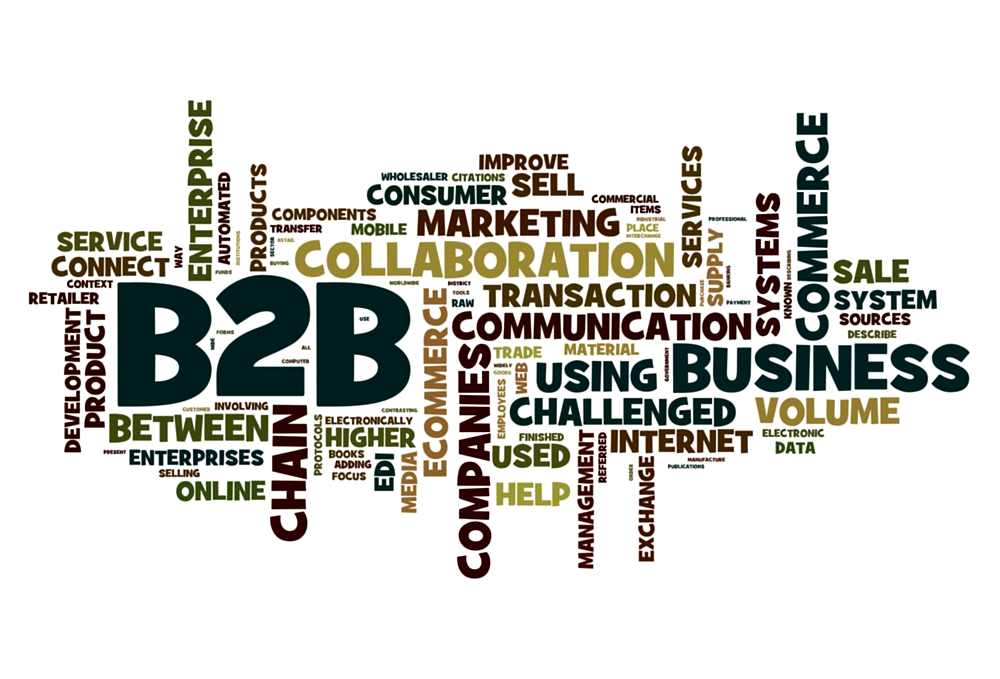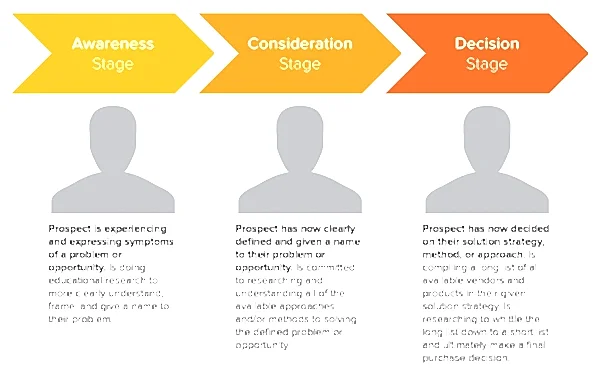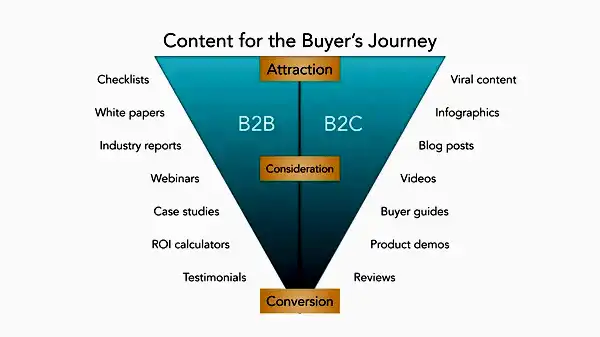In today’s competitive business landscape, B2B companies constantly seek ways to unlock their growth potential. One powerful tool that has emerged in recent years is B2B digital marketing strategies. By leveraging the digital realm, businesses can reach and engage their target audience more effectively.
Businesses can showcase their products or services to a larger audience through various digital channels such as search engines, social media platforms, and industry-specific websites. This heightened visibility not only generates brand awareness but also attracts potential leads who are actively seeking solutions to their business challenges. Explore the key elements of successful B2B digital marketing strategies and how they can drive business growth.

Why B2B Digital Marketing strategies are essential for businesses?
B2B digital marketing strategies encompass various tactics and approaches designed to promote products or services to other businesses. These strategies leverage the power of digital channels, data analytics, targeted messaging, and personalized content to connect with the right audience, build trust and credibility, drive lead generation, and ultimately increase conversions.

Generating Quality Leads: B2B digital marketing strategies help businesses generate high-quality leads by implementing lead generation tactics tailored to the B2B environment. Companies can attract prospects actively seeking solutions to their business challenges through content marketing, search engine optimization, and targeted advertising. By providing valuable content and capturing relevant information through lead capture forms, businesses can build a pipeline of qualified leads more likely to convert into customers.
Optimizing Return on Investment (ROI): B2B digital marketing strategies offer the advantage of being highly measurable, allowing businesses to track and analyze the ROI of their marketing campaigns. With the ability to monitor key metrics such as cost per lead, conversion rates, and customer acquisition costs, businesses can make data-driven decisions to optimize their marketing spend. By identifying which strategies and channels deliver the highest ROI, companies can allocate resources more effectively and maximize the impact of their marketing efforts.
Facilitating Relationship Building: B2B digital marketing strategies facilitate relationship building between businesses. Businesses can engage in conversations, networking, and collaboration with other companies through various digital channels, such as social media platforms, online communities, and industry-specific forums. This fosters the development of strategic partnerships, referrals, and cross-promotion opportunities, leading to mutual growth and business expansion.
Adapting to Digital Transformation: Digital transformation has revolutionized business operations across industries. B2B digital marketing strategies enable businesses to adapt to this transformation and leverage digital advancements to their advantage. From utilizing marketing automation tools to streamline processes, personalizing customer experiences through data-driven insights, or adopting emerging technologies like artificial intelligence and chatbots, businesses can stay ahead of the curve and meet the evolving demands of the digital era.
Scalability and Flexibility: B2B digital marketing strategies offer scalability and flexibility to businesses of all sizes. Whether a startup or an established enterprise, digital marketing allows companies to scale their efforts based on their goals and available resources, digital channels can accommodate a wide range of budgets and allow businesses to test and refine their strategies without high upfront costs. This flexibility enables businesses to adapt their marketing approach as they grow and respond to market changes.
Global Reach and Expansion: B2B digital marketing strategies break down geographical barriers, allowing businesses to reach a global audience. With digital channels and tools, companies can expand their market reach beyond their local region and tap into new markets and opportunities. Businesses can effectively connect with international prospects and establish a global presence by tailoring their messaging and campaigns to different cultural and regional contexts.
Developing a Solid B2B Digital Marketing Strategy
B2B companies must define clear marketing objectives and goals to unlock growth potential. These objectives include generating leads, increasing brand awareness, or driving conversions. By understanding these goals, businesses can align their digital marketing efforts accordingly.
Identifying and understanding the target B2B audience is also crucial. This involves conducting thorough market research and competitor analysis to gain insights into the industry landscape and target customers. Businesses can effectively tailor their marketing messages by understanding their pain points, challenges, and preferences.
Crafting a compelling value proposition and unique selling points is another vital component of B2B digital marketing strategies. Businesses must clearly communicate the value they bring to their customers and differentiate themselves from competitors. This can be achieved through a strong brand identity, thought leadership, or innovative solutions.

Selecting the Right Digital Marketing Channels and Tactics
With a solid strategy, B2B companies can now explore the various digital marketing channels and tactics available to them. Content marketing is a key strategy that involves creating and distributing valuable and relevant content to attract and engage the target audience. Businesses can be trusted advisors in their respective fields by sharing industry insights, thought leadership articles, and informative guides.
Segmentation and Personalization
Segmentation and personalization are essential elements of effective B2B digital marketing strategies. Businesses can deliver highly relevant and personalized messaging by dividing the target audience into distinct segments based on industry, company size, or job role characteristics. This approach allows companies to address the specific pain points and challenges of different segments, increasing the chances of engagement and conversion.
Moreover, personalization can extend beyond just messaging. B2B companies can leverage technologies like marketing automation and customer relationship management (CRM) to deliver personalized experiences at various touchpoints. For example, personalized email campaigns or tailored website content can create a more customized and engaging experience for potential buyers, leading to higher conversion rates.
Thought Leadership and Content Marketing
Establishing thought leadership through content marketing is a powerful B2B digital marketing strategy. By consistently creating and sharing valuable content, businesses can position themselves as industry experts and trusted advisors. Thought leadership content can be blog articles, whitepapers, case studies, or webinars, addressing relevant industry topics and providing insights and solutions.
Content marketing helps build brand authority and drives organic traffic to the company’s website. By optimizing content for search engines and promoting it through various channels, businesses can attract prospects actively seeking information and solutions related to their industry. This organic traffic can increase brand awareness, engagement, and conversions.

Social Media Engagement and Influencer Marketing
Social media platforms offer B2B companies a unique opportunity to engage with their target audience and build relationships. Businesses can foster engagement, gain followers, and amplify their brand messaging by creating a strong social media presence and sharing valuable content. Platforms like LinkedIn, Twitter, and Facebook are particularly relevant for B2B marketing, as they allow businesses to connect with decision-makers and industry professionals.
Data Analytics and Measurement
To measure the effectiveness of B2B digital marketing strategies, businesses must track and analyze key performance indicators (KPIs). This includes metrics such as website traffic, conversion rates, open email rates, and social media engagement. By leveraging marketing automation and CRM integration, companies can gain valuable insights into customer behavior, preferences, and campaign performance.
Continuous testing and iteration are crucial for optimizing B2B digital marketing strategies. By analyzing data, identifying areas for improvement, and implementing A/B testing, businesses can refine their tactics and achieve better results over time.

Case Studies and Success Stories
Real-world examples of effective B2B digital marketing strategies can provide valuable insights and inspiration. For instance, Company X successfully implemented a content marketing strategy that significantly increased website traffic and lead generation. By analyzing their approach, businesses can identify key success factors and apply similar strategies to their own marketing efforts.
Effective B2B digital marketing strategies have the power to unlock growth potential for businesses. By understanding the B2B digital marketing landscape, developing a solid strategy, selecting the right channels and tactics, and leveraging data analytics, companies can drive business growth and stay ahead of the competition. B2B companies need to embrace digital marketing strategies and adapt to the evolving needs of their target audience. By doing so, they can unlock new opportunities and achieve their growth objectives in today’s digital age.
Advantages of B2B Digital Marketing Strategies
B2B digital marketing strategies provide significant business advantages, including increased reach, targeted marketing, cost-effectiveness, measurable results, improved lead generation and conversion, enhanced customer engagement, and competitive advantage. By leveraging these strategies, businesses can unlock growth potential, build strong customer relationships, and achieve long-term success in the B2B marketplace.
B2B digital marketing strategies offer numerous advantages that greatly benefit businesses’ growth and success. Here are some key advantages:
Increased Reach and Visibility: B2B digital marketing strategies enable businesses to expand their reach and increase their visibility among their target audience. Businesses can effectively engage with potential customers and increase brand exposure through various digital channels such as search engines, social media platforms, and email marketing. This heightened visibility allows businesses to connect with a wider audience and generate more leads.
Targeted Marketing Approach: B2B digital marketing strategies allow for precise targeting of specific industries, businesses, and decision-makers. With the ability to identify and understand their target audience’s needs, pain points, and preferences, businesses can tailor their marketing messages and content to resonate with their prospects. This targeted approach ensures that marketing efforts are focused on the most relevant leads, leading to higher conversion rates and improved ROI.
Cost-Effectiveness: B2B digital marketing strategies often offer a more cost-effective approach than traditional marketing methods. Digital channels such as content marketing, social media, and email marketing allow businesses to reach a large audience at a fraction of the cost of traditional advertising. Additionally, digital marketing allows for precise budget allocation, ensuring that resources are allocated to the most effective strategies and campaigns.
Measurable Results and Data-Driven Insights: One significant advantage of B2B digital marketing strategies is the real-time ability to measure and track results. Businesses can leverage analytics tools and metrics to monitor the performance of their campaigns and track website traffic, conversion rates, and customer engagement. This data-driven approach provides valuable insights into the effectiveness of marketing strategies, allowing businesses to make data-backed decisions and optimize their tactics for better results.
Improved Lead Generation and Conversion: B2B digital marketing strategies are highly effective in generating quality leads and driving conversions. Through lead nurturing campaigns, personalized content, and targeted messaging, businesses can build relationships with prospects and guide them through the sales funnel. Automation tools and customer relationship management (CRM) integration further enhance lead generation efforts by streamlining processes and enabling timely follow-ups.
Enhanced Customer Engagement and Relationship Building: B2B digital marketing strategies allow businesses to engage with customers and build lasting relationships. Social media platforms and email marketing allow for direct communication, enabling businesses to address customer inquiries, provide support, and foster engagement. By consistently delivering valuable content and personalized experiences, businesses can establish themselves as trusted partners and industry leaders.
Competitive Advantage: Implementing effective B2B digital marketing strategies gives businesses a competitive edge in the marketplace. Businesses can differentiate themselves from competitors by staying abreast of industry trends, leveraging innovative marketing tactics, and effectively targeting their audience. A strong digital presence and strategic marketing approach can position a business as a thought leader and influencer in their industry, attracting more customers and opportunities.
Conclusion
Effective B2B digital marketing strategies are essential for businesses to unlock their growth potential. These strategies offer advantages such as increased reach, targeted marketing, cost-effectiveness, measurable results, improved lead generation, and conversion, enhanced customer engagement, competitive advantage, scalability, and global reach. Embracing these strategies will enable businesses to thrive and achieve long-term success in the competitive world of B2B marketing.
FAQ’s
B2B digital marketing strategies refer to the specific tactics and approaches that businesses employ to promote their products or services to other businesses. These strategies are tailored to meet the unique needs and dynamics of the B2B landscape.
Businesses need B2B digital marketing strategies to effectively target their audience, build trust and authority, navigate complex sales cycles, enhance brand visibility, leverage data and analytics, and adapt to changing buyer behavior. These strategies are essential for unlocking growth potential and staying competitive in the B2B marketplace.
B2B digital marketing strategies help businesses reach their target audience by employing targeted marketing approaches, utilizing relevant digital channels, and creating personalized content that resonates with other businesses. These strategies ensure marketing efforts focus on reaching the right decision-makers and generating quality leads.
B2B digital marketing strategies offer advantages such as lead nurturing campaigns, personalized content, and targeted messaging, which effectively generate and nurture quality leads. These strategies guide prospects through the sales funnel, resulting in higher conversion rates and improved ROI.
B2B digital marketing strategies contribute to building trust and establishing authority by showcasing expertise thought leadership, and industry knowledge. Companies position themselves as trusted partners and authorities in their field by consistently delivering valuable content, sharing insights, and addressing common challenges businesses face.





Pingback: Dropshipping vs Ecommerce: Which One is better? - Digital Marketing Agency in Islamabad-Pakistan